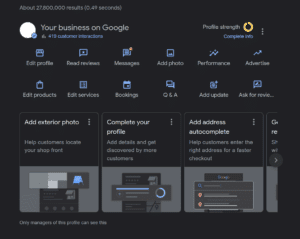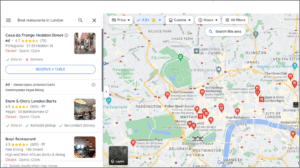We often get asked “how many local citations can you provide”, rather than “do you manage Local Listings?”
Local listing optimisation and management is about ensuring that your business NAP information is consistent and correct wherever it happens to be published, whereas local citation building is about identifying high value local reference sites that also offer NAP.
Local Listing Management is an ongoing process.
Focusing on “citations” without considering the local listing ecosystem can be counterproductive. This blog will explain the difference between local listings and local citation and also the mechanics of the local listing ecosystem.
The Local Listing Ecosystem
The Local Listing Ecosystem is made up of hundreds of local directories and listing sites consisting of Aggregators, Distributors, Scrapers and Publishers which gather and publish business listing information from many different sources. Local directories range from basic NAP listings sites to detailed business information sites offering rich content, customer reviews and even credit status. Some sites are generic, listing every type of business and accessible to a wide audience, whereas others may be B2C, B2B, sector or even location specific.
There are more than 2 million local business listings in the UK alone. Keeping listing sites up-to-date is a challenging and never ending process as businesses are constantly opening, closing, moving premises, changing; phone numbers, business names or opening times etc. Consequently, every directory is in a constant state of flux. No local directory can confidently claim to be 100% up to date.
Because directories get their data from different sources, it is possible to remove incorrect NAP data from a directory only for it to re-appear a few months later. This is because the directory may get its primary data feed from another distributor that is still listing the old data. Adding new NAP data to a listing site that is already listing the old data NAP data can add to the problem of incorrect listings not solve it. The listing site may not remove the old NAP listing resulting in duplicates or conflicting listings. It can get messy! You need to tell the directories and distributors which NAP listings to remove before adding the new ones.
To add to the complexity, many directories that are ‘on the grid’ receive regular NAP updates from a notable distributor, however there are also many ‘off grid’ directories which update their listings very occasionally and in some cases never. There are also the ‘start-up’ directories that use very old NAP data as it is cheap. As a result, we frequently find NAP listings which are more than 10 years out of date.
The Difference between a Local NAP Listing and a Local Citation.
Local Citations are high value local websites that may or may not be a listing site.
Some local listing sites can be claimed and optimised with rich brand content providing a good user experience and a valuable local citation (for free). Many local listings only offer free basic NAP information with no content, which you may dismiss as not being a useful local citation. However, this is not always the case. For example; Thomsonlocal’s free listing only offers NAP with no content, yet it is a very important distributor site that verifies new listings to ensure that they are correct. You need to be listed in Thomsonlocal.
Conversely a free listing on Yell.com can be a very engaging local citation which although effective, is not going to be listed anywhere else as Yell is not a distributor.
If you are listed on a distributor site your NAP will eventually appear on many of the others sites over time, but will it be correct and will it be up-to-date?
The reality is that your business information is compiled and distributed by people and machines that do not know you. They are doing the best job they can, but without your input, who’s to say it is correct?
Local Citations don’t need to be local listing sites as such, they can be local specific websites which are rich in local content specific to a given area, such as; local community websites, local authority, local library, local clubs site (for example). None of these are listing sites, yet it may be possible to obtain a citation from them. These sites may not have a much traffic, or in fact a high domain authority, however, due to the fact that they are highly relevant to a specific local community, they perform well in local search for their areas.
Many local citation sites are ‘off grid’ – As a result, they can become VERY out of date. Make sure you keep a track of where you are listed.
Very few companies have a grip on their local listings due to the complexities of the local listing or local directory eco system. Local citation building and Local listing optimisation are an essential part of local search optimisation.
You need to understand how they work and have a strategy for managing them.
Fundamentally, your NAP details need to be correct wherever they are listed. Managing your local listings is good housekeeping with SEO benefits.
Key Points:
- The local listing ecosystem is made up of hundreds of on-grid and off-grid listing sites, directories, distributors and aggregators. Your NAP details can be on them whether you like it or not.
- On-grid listing sites are updated by data feeds from distributors, whereas off-grid listings may never be updated or need to be added/updated by you.
- NAP details listed on a distributor site may appear in other directories over time.
- Adding NAP data to a listing site without fixing the NAP on the distributor site may result in duplicates and conflicting listings.
- Unclaimed listings can be changed, whereas claimed listings are ‘locked’ by the owner.
- Local Citations are high value local websites that may or may not be a listing site.
- Focusing just on Local Citations and ignoring local listings can result in multiple conflicting NAP listings being listed in multiple places, which confuses search engines and customers.
- An effective local SEO strategy requires both local citations and local listings.
If you need help in developing and managing a local listing and local citation strategy please call MiShop.local




